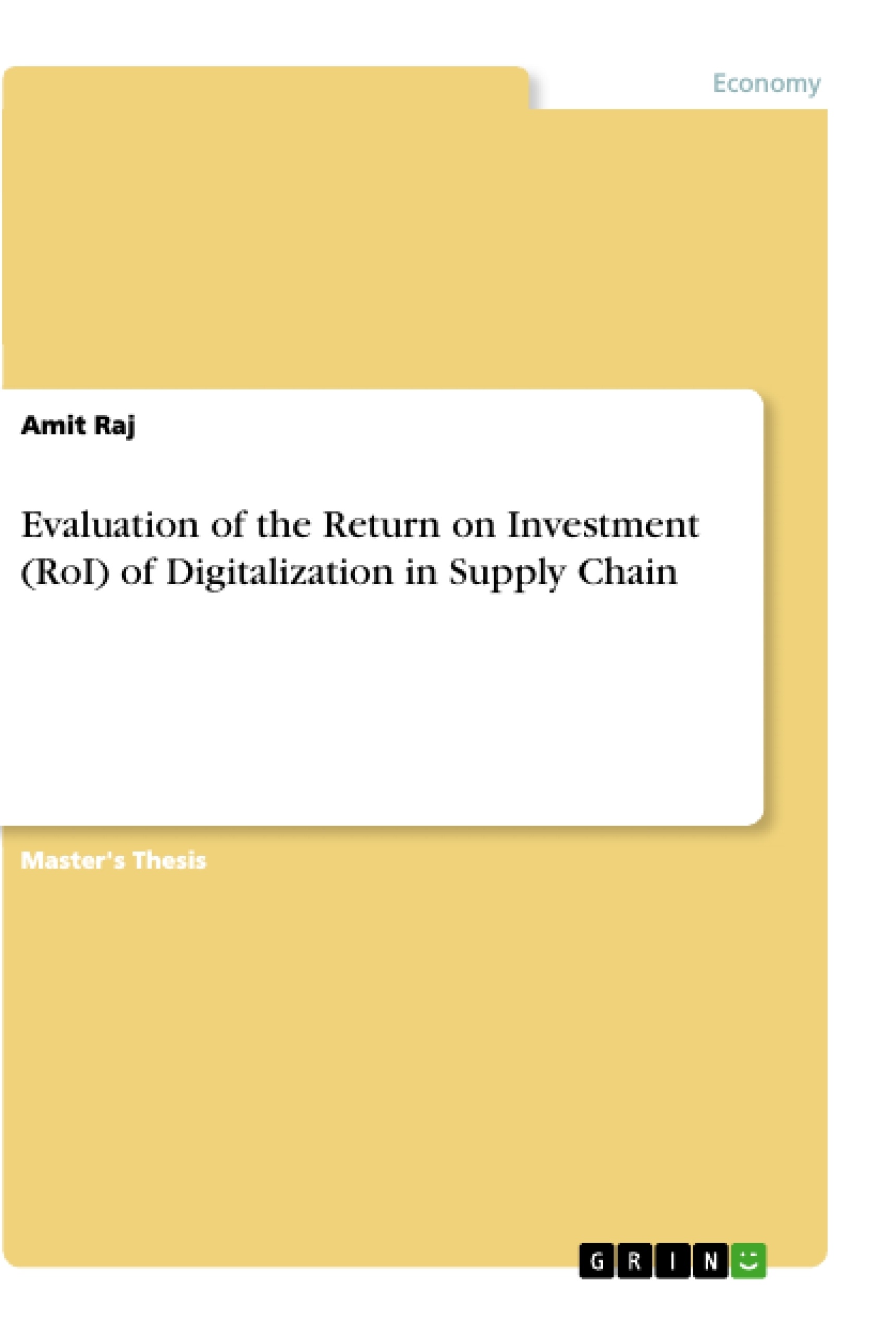The Supply chain process is an integrated business process that organizes and manages the flow of goods and services from the manufactures to the end-users. It and streamlines the supply chain activities by establishing linkage between suppliers, dealers, manufacturers, service providers, and end-users. The concept of supply chain management is adopted by different industries such as healthcare, retail, food, manufacturing, construction, and textile to enhance the working process and optimize customer value. The working of the supply chain process could be enhanced by adopting advanced technologies and digitalization in its working. While focusing on digitalization in the supply chain, it includes the introduction of digital technologies such as Big Data, the Internet of Things (IoT), Artificial Intelligence (AI), cloud computing, predictive analytics, and blockchain into the supply chain process. The technologies enhance the supply chain management system by coordinating and synchronizing the different supply chain parts such as order, raw materials, production, finished products, warehouse, logistics, packaging, delivery, retailer, and end-user. For instance, the adoption of the blockchain process into the supply chain management process helps in simplifying the complex supply chain work process and transferring paper-intensive work processes into digitalized formats. On the other hand, the introduction of the robotic process helps in digitizing the back-office process by 50% to 80% that helps in faster movement and précised tracking of products. Predictive analytics is based on advanced analytics that facilities the supply chain process by streamlining internal and external demand variables such as social media trends, sensor data, and demand plans. It helps in improving demand prediction accuracy and lowering prediction errors by 30% to 50%. It increases industry and business to adopt digitalization in supply chain process to experience technology maturity and accelerated functionaries.
Digital technology such as Big Data is included in the supply chain process that synchronizes the different processes such as promotion, procurement, stockroom, and haulage.
Inhaltsverzeichnis (Table of Contents)
- Acknowledgement
- Table of Contents
- List of Tables
- List of Figures
- Chapter 1: Introduction
- 1.1 Research Background
- 1.2 Research Problem
- 1.3 Aims And Objectives
- 1.4 Contribution Of Study
- 1.5 Thesis Structure
- Chapter 2: Literature Review
- 2.1 Introduction
- 2.2 Overview of supply chain process and capabilities
- 2.3 Digital transformation of supply chain
- 2.4 Benefits of digital supply chain
- 2.5 Digitization of supply chain and business performance
- 2.6 Return on Investment (ROI) analysis of supply chain management
- 2.7 Research Gap
- 2.8 Conceptual framework
- 2.9 Hypothesis
- Chapter 3: Research Methodology
- 3.1 Introduction
- 3.2 Research Paradigm
- 3.3 Research Approach
- 3.4 Research Design
- 3.5 Data Collection Method
- 3.6 Population and Sampling
- 3.7 Data Analysis and Interpretation
- 3.8 Ethical Considerations
- 3.9 Summary
- Chapter 4: Data Analysis
- Chapter 5: Results And Discussion
- 5.1 Introduction
Zielsetzung und Themenschwerpunkte (Objectives and Key Themes)
This master's thesis aims to evaluate the Return on Investment (ROI) of digitalization in the supply chain. It explores the impact of digital transformation on supply chain capabilities, processes, and business performance, using a quantitative research approach. The study investigates the relationship between digitalization and ROI, seeking to identify the key drivers of success and the potential benefits.
- The impact of digitalization on supply chain capabilities and processes
- The benefits of digital transformation in the supply chain
- The relationship between digitalization and business performance
- The measurement and analysis of ROI in the context of supply chain digitalization
- The identification of factors influencing the success of digitalization initiatives
Zusammenfassung der Kapitel (Chapter Summaries)
- Chapter 1: Introduction This chapter sets the scene for the research by defining the research background, problem, aims, and objectives. It also outlines the structure of the thesis.
- Chapter 2: Literature Review This chapter delves into the existing literature on supply chain management, digital transformation, and ROI analysis. It explores the benefits of digital supply chains, examines the relationship between digitization and business performance, and identifies relevant research gaps.
- Chapter 3: Research Methodology This chapter details the research methodology employed in the study. It outlines the research paradigm, approach, design, data collection methods, and ethical considerations.
- Chapter 4: Data Analysis This chapter presents the analysis of data collected from the survey of industry experts.
- Chapter 5: Results And Discussion This chapter presents the findings of the study, discussing the results in relation to the literature review and research questions.
Schlüsselwörter (Keywords)
This research focuses on the key concepts of digitalization, supply chain management, Return on Investment (ROI), business performance, and quantitative research. It investigates the impact of digital transformation on supply chain capabilities, processes, and business performance, exploring the drivers of success and the potential benefits of digitalization initiatives.
- Quote paper
- Amit Raj (Author), 2021, Evaluation of the Return on Investment (RoI) of Digitalization in Supply Chain, Munich, GRIN Verlag, https://www.grin.com/document/1030856




